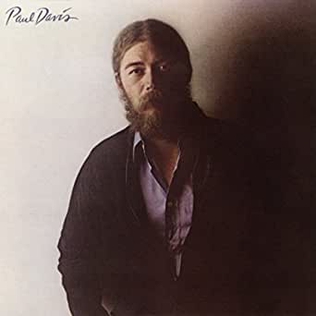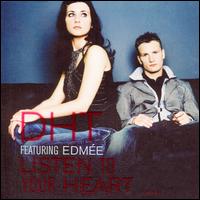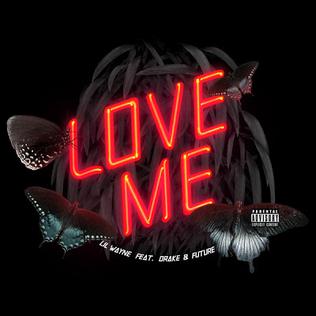
"Stand by Me" is a song originally performed in 1961 by American singer-songwriter Ben E. King and written by him, along with Jerry Leiber and Mike Stoller, who together used the pseudonym Elmo Glick. According to King, the title is derived from, and was inspired by, a spiritual written by Sam Cooke and J. W. Alexander called "Stand by Me Father," recorded by the Soul Stirrers with Johnnie Taylor singing lead.

"MacArthur Park" is a song written by American singer-songwriter Jimmy Webb that was recorded first by Irish actor and singer Richard Harris in 1968. Harris's version peaked at number two on the Billboard Hot 100 chart and number four on the UK Singles Chart. "MacArthur Park" was subsequently covered by numerous artists, including a 1970 Grammy-winning version by country music singer Waylon Jennings and a number one Billboard Hot 100 disco arrangement by Donna Summer in 1978. Webb won the 1969 Grammy Award for Best Arrangement Accompanying Vocalist(s) for the Richard Harris version.

"TSOP (The Sound of Philadelphia)" is a 1974 recording by MFSB featuring vocals by The Three Degrees. It was written by Gamble and Huff as the theme for the American musical television program Soul Train, which specialized in African American musical performers. The single was released on the Philadelphia International Records label. It was the first television theme song to reach No. 1 on the Billboard Hot 100.

"Dancing in the Moonlight" is a song written by Sherman Kelly, originally recorded in 1970 by Kelly's band Boffalongo, and then a hit single by King Harvest in 1972, reaching number 5 in Canada and number 13 on the Billboard Hot 100. In 2000, a cover by English band Toploader became a worldwide hit and achieved multi-platinum status in the United Kingdom. A version by Swedish EDM duo Jubël, released in 2018, was a hit in Europe.
DHT was a Belgian duo consisting of singer Edmée Daenen and Flor Theeuwes, also known as DJ Da Rick. It had a hit in the US and Australia in 2005, with its cover version of "Listen to Your Heart", originally recorded by Roxette. The track reached number seven on the UK Singles Chart in December of that year. Marketing of the song often referenced DHT as an acronym for Definite Hit Track. On 14 June, 2019, the duo unveiled a previously unreleased album, titled #2 on Apple Music, Spotify, and other music portals.

Paul Lavon Davis was an American singer and songwriter, best known for his radio hits and solo career that started worldwide in 1970. His career encompassed soul, country, and pop. His most successful songs are 1977's "I Go Crazy", a No. 7 pop hit that once held the record for the longest chart run on the Billboard Hot 100, and 1982's "'65 Love Affair", which at No. 6 is his highest-charting single. Another pop hit, "Cool Night", was released in 1981. In the mid-1980s, he also had two No. 1 country hits as a guest vocalist on songs by Marie Osmond and Tanya Tucker.

"Listen to Your Heart" is a song by Swedish rock duo Roxette, which was originally released in Sweden in September 1988 as the second single from the duo's second studio album, Look Sharp! (1988). It was written by Per Gessle with former Gyllene Tider guitarist Mats "M.P." Persson. The song went on to become one of the most successful singles of 1989, reaching number one in both the United States and Canada around November 1989. The track was the first song to reach number one in the US without a commercially released 7-inch single.

"Return of the Mack" is a song written and recorded by British R&B singer Mark Morrison, released by WEA and Atlantic as the third single from his debut album by the same name (1996). The song topped the UK Singles Chart a month after its release, then became a European and Australian hit. In the United States, it reached number two on the Billboard Hot 100 and went platinum. The music video for the song, directed by Jake Nava, was released in the United Kingdom in March 1996 and in the United States in February 1997. Billboard magazine featured "Return of the Mack" in their lists of "Billboard's Top Songs of the '90s" in 2019 and "500 Best Pop Songs of All Time" in 2023.
"Wind Beneath My Wings" is a song written in 1982 by Jeff Silbar and Larry Henley.

"Wonderful World" is a song by American singer-songwriter Sam Cooke. Released on April 14, 1960, by Keen Records, it had been recorded during an impromptu session the previous year in March 1959, at Sam Cooke's last recording session at Keen. He signed with RCA Victor in 1960 and "Wonderful World", then unreleased, was issued as a single in competition. The song was mainly composed by songwriting team Lou Adler and Herb Alpert, but Cooke revised the lyrics to mention the subject of education more.
"Dream a Little Dream of Me" is a 1931 song with music by Fabian Andre and Wilbur Schwandt and lyrics by Gus Kahn. It was first recorded in February 1931 by Ozzie Nelson and His Orchestra, soon followed by Wayne King and His Orchestra with vocals by Ernie Birchill. A popular standard, it has seen well over 400 recorded versions.

"Crazy" is a song written by English singer-songwriter Seal and English songwriter Guy Sigsworth. It was produced by Trevor Horn and released by ZTT Records in November 1990 on Seal's debut album, Seal (1991). The song became his first commercial hit, reaching No. 2 in the United Kingdom, while becoming his first top ten single in the United States. It has since been covered by several artists, including Alanis Morissette, whose version was released as a single from her 2005 compilation album, The Collection.
"Don't Know Much" is a song written by Barry Mann, Cynthia Weil and Tom Snow. Mann was the first to record the song in 1980, gaining a minor chart hit in the US. The song was made famous when it was covered as a duet by Linda Ronstadt and Aaron Neville in 1989. Their version was a worldwide success, topping the Irish Singles Chart and reaching the top 10 in several territories.

"Signed, Sealed, Delivered " is a soul song, by American musician Stevie Wonder, released in June 1970 as a single on Motown's Tamla label. It spent six weeks at number one on the U.S. R&B chart and peaked at number three on the U.S. Pop chart. In the same year, the song was also released on the album Signed, Sealed & Delivered.

"We've Got Tonite" is a song written by American rock music artist Bob Seger, from his album Stranger in Town (1978). The single record charted twice for Seger, and was developed from a prior song that he had written. Further versions charted in 1983 for Kenny Rogers as a duet with Sheena Easton, and again in 2002 for Ronan Keating.

Listen to Your Heart is Belgian band DHT's 2005 debut album. It produced the singles "Listen to Your Heart", "My Dream", "Driver's Seat", "Someone", "I Go Crazy" and "I Miss You". Also covered is "I Can't Be Your Friend", originally recorded by the short-lived country music band Rushlow on their 2003 album Right Now, while "At Seventeen" was previously recorded by Janis Ian.

"Wake Up Everybody" is an R&B song written by John Whitehead, Gene McFadden and Victor Carstarphen.

"Love Me" is a song by American rapper Lil Wayne featuring Drake and Future from the former's tenth studio album I Am Not a Human Being II (2013). Written by the artists alongside producers Mike WiLL Made It and A+, it was released on January 18, 2013, by Young Money Entertainment, Cash Money Records, and Republic Records as the second single from the album. It also appeared for free download on the Rich Gang mixtape Rich Gang: Allstars (2014).

"So Sad (To Watch Good Love Go Bad)" is a song written by Don Everly, which was released by The Everly Brothers in 1960. The song was later a country hit for multiple artists in the 1970s and 80s.

"Sweet Life" is a song written, composed, and recorded by American singer-songwriter Paul Davis. It was the third single he released from his 1977 album Singer of Songs: Teller of Tales, and his fourth-highest peaking pop hit, peaking at #17 on the Billboard chart in late 1978. On the Cash Box chart, the song spent three weeks at #15. The song also reached #15 in Canada.

















